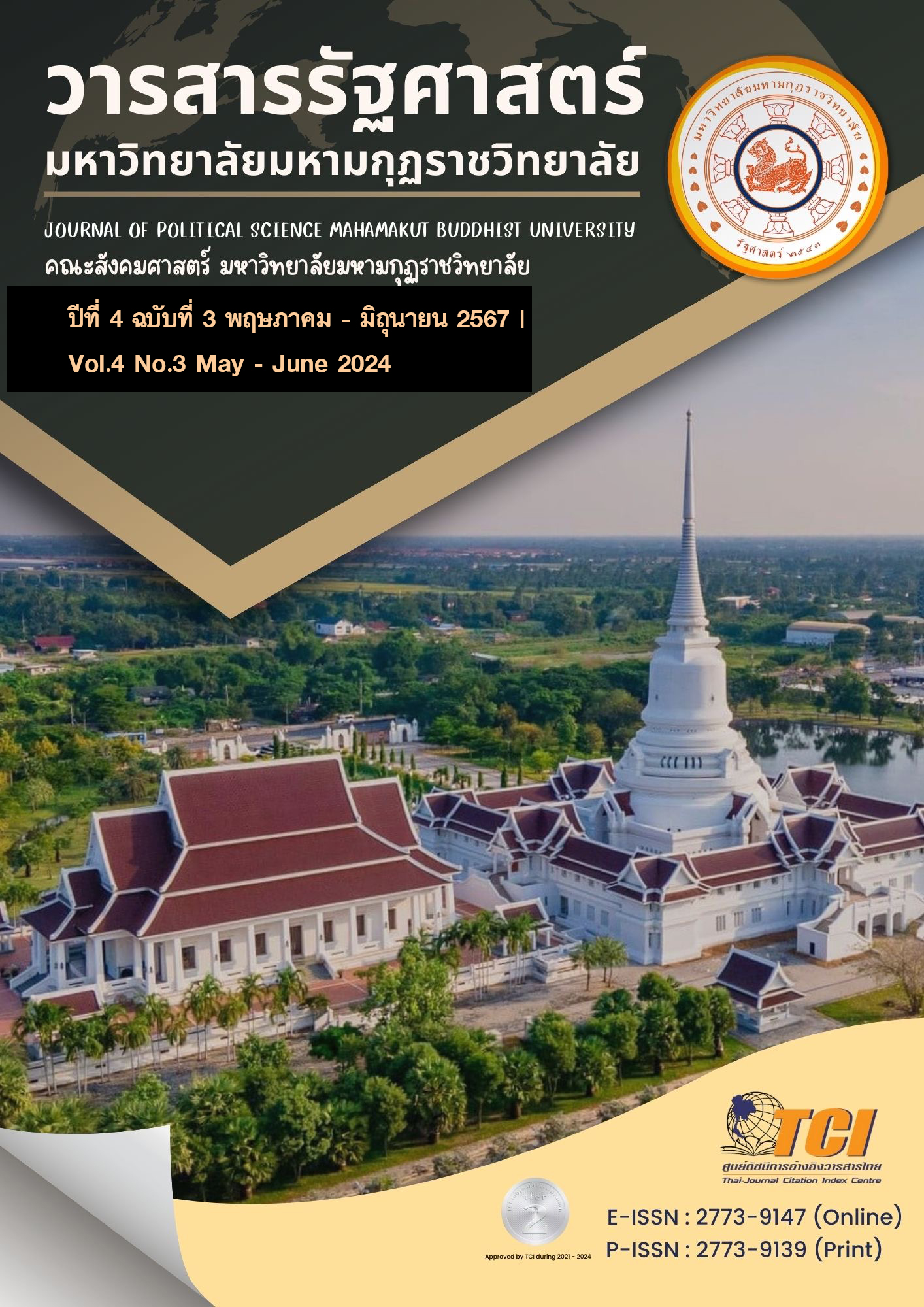HUMAN CAPITAL DEVELOPMENT IN PUBLIC SECTOR AND NEW PUBLIC GOVERNANCE (NPG)
Main Article Content
Abstract
Human are like the capital of an organization. “Human Capital” refers to the skills, knowledge, abilities and experiences that human have accumulated within themselves. And being able to put those things together until it becomes the potential or driving force of the organization towards success.
This academic article “Human capital development in Thai public sector and New Public Governance (NPG). The author focuses on the content about concept of human capital development in Thai public sector and connected to the concept about new public governance, which is the paradigm of public administration in present. Consisting of 6 New Public Governance mission: 1) The Administration using a market or quasi-market model for the delivery of Public Service. 2) The Administration in the form of corporate governance 3) The Administration in the form of New Public Management 4) The Administration in the form of Good Governance 5) The Administration by connected social-political systems and 6) The Administration in the form network.
By developing government human capital to prepare government personal, it is necessary to consider strategies for selecting government human resources, including; 1) Selecting valuable human resources. 2) Selecting rare human resources. 3) Selecting human resources that are difficult to imitate. and 4) Establishing a good human resources management system.
Article Details

This work is licensed under a Creative Commons Attribution-NonCommercial-NoDerivatives 4.0 International License.
References
กันยารัตน์ จันทร์สว่าง และสุภาวดี พรหมบุตร. (2562). ทุนมนุษย์กับการเปลี่ยนแปลง: กระบวนทัศน์ใหม่ของการบริหารทรัพยากรมนุษย์. วารสารวิทยาการจัดการ, 6 (2), 209-222.
ดนัย เทียนพุฒ. (2551). บริหารคนในทศวรรษหน้า (พิมพ์ครั้งที่ 4). กรุงเทพฯ: เอ็กซเปอร์เน็ท.
ไททัศน์ มาลา. (2561). การจัดการปกครองสาธารณะแนวใหม่ (New Public Governance: NPG): แนวคิดและการประยุกต์ใช้ในการจัดการปกครองท้องถิ่น. วารสารวไลยลงกรณ์ปริทัศน์ (มนุษย์ศาสตร์และสังคมศาสตร์), 8 (1), 179-194.
ประไพทิพย์ ลือพงษ์. (2555). การพัฒนาทุนมนุษย์ให้มีสมรรถนะความสามารถในการแข่งขัน. วารสารนักบริหาร, 32 (4), 103-108.
ปรีดาพร คณทา และดารารัตน์ อินทร์คุ้ม. (2559). ทุนมนุษย์กับการพัฒนาทรัพยากรมนุษย์แนวคิดใหม่. วารสารนวัตกรรมและการจัดการ มหาวิทยาลัยราชภัฏสวนสุนันทา, 1 (1), 62-70.
เอลวิส โครตชมพู และจุฬาพรรณภรณ์ ธนะแพทย์. (2565). การบริหารทุนมนุษย์ในยุคศตวรรษที่ 21. วารสาร มจร.อุบลปริทรรศน์, 7 (1), 1017-1028.
Cheema, G.S. (2005). From Public Administration to Governance: The Paradigm Shift in the Link between Government and Citizens. A paper presented at the 6th Global Forum on Reinventing Government towards Participatory an on Transparent Governance. on 24-27 May 2005, Seoul, Republic of Korea.
Osborne, S.P. (2010). Introduction: The (New) Public Governance: A Suitable Case for Treatment?. In The New Public Governance? : Emerging Perspectives on the Theory and Practice of Public Governance. Stephen P. Osborne (ed.). London: Routledge.
Pestoff, V. (2010). New Public Governance, Co-production & Third Sector Social
Services. Institute of Civil Society Studies, Ersta Skondal University Collage, Stockholm, Sweden.
Rhodes, R. A. W. (1997). Understanding governance: Policy Networks, Governance, Reflexivity and Accountability. Open University Press, Buckingham.


